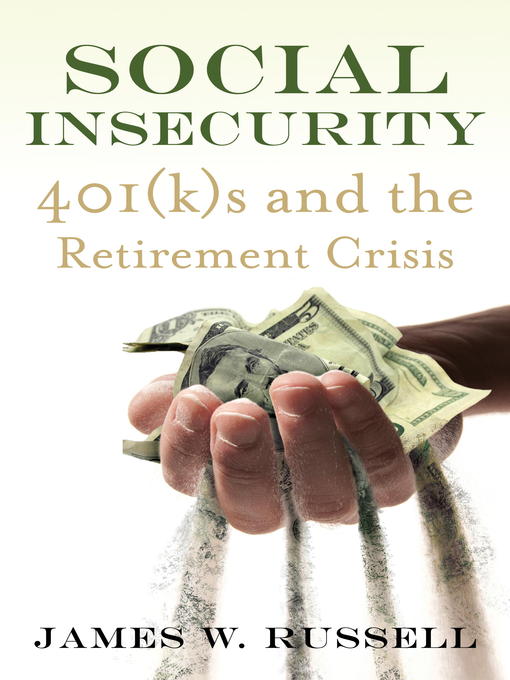
Social Insecurity
401(k)s and the Retirement Crisis
کتاب های مرتبط
- اطلاعات
- نقد و بررسی
- دیدگاه کاربران
نقد و بررسی

January 27, 2014
Retirement expert Russell (Double Standard) offers a sobering and persuasive analysis of the gradual shift from more secure defined-benefit plans (pensions) to riskier defined-contribution plans (401(k)s). When he retired at age 65, Russell should have had 70%–100% of his final salary as income, according to conventional wisdom, but despite a frugal lifestyle, he had only 45%–50% of his income, between his 401(k) and projected Social Security. Russell suggests that confusion about retirement saving leads average Americans to become the victims of a swindle perpetrated by think tanks and the financial services industry. He explains how popular economic theory, led by Milton Friedman’s Chicago School, turned against Social Security, and traces changes during the Reagan administration, when more companies switched from pensions to 401(k)s. Russell led a successful movement in his own company to switch back to pensions. As he notes, there’s now an international movement to go back to a plan where most retirement income is bolstered by pensions and Social Security—“the most successful retirement program by far in terms of the number of people who have benefited.” He closes with suggestions for how to put that plan into effect. The book is a hair-raising look at the dire retirement prospects of tens of millions of Americans. Agent: Scott Mendel, Mendel Media Group.

May 1, 2014
Russell (Double Standard) argues that defined-benefit pension plans are substantially better for both employees and employers than defined-contribution 401(k)-type retirement ones. The author's message is that 401(k) plans are essentially scams that mainly benefit the financial services industry through the various fees that are charged. Having led, in Connecticut, one of the first successful employee movements to replace a state's 401(k)-like retirement plan with a pension plan, Russell offers a unique view. In addition to recounting the experiences of the Connecticut Committee for Equity in Retirement, the author covers historical events that brought about changes to retirement policy in the United States. The book is full of statistics and useful tables that help readers to digest this complicated topic. Russell encourages readers to avoid the retirement pitfalls he writes about by learning as much as they can about the different systems, which he admits are confusing for most people, and suggests ways to do so. He argues that education on the topic is key. VERDICT Essential for anyone interested in the evolvement of retirement systems and how these changes affect their own retirement.--Leigh Mihlrad, FDIC Lib., Washington, DC
Copyright 2014 Library Journal, LLC Used with permission.

March 15, 2014
This is the story of how one individual fought bureaucracyand won. Along the way, Russell (Double Standard: Social Policy in Europe and the U.S., 2010) educates us about the fallacies inherent in our three-legged retirement system of Social Security, personal savings, and the employer pension 401(k) system. Although most of his battle is with the pension (defined benefit or DB) plan in the state of Connecticut, he manages to give readers an eyeful (and earful, if you can hear his insistence) about Social Security and the issues with personal investing not only in the U.S. but also in Chile, the UK, and other countries. His homework is impressive. He's researched the opinions of the World Bank, countless politicos and U.S. presidents, and conservative think tanks, as well as the outliers, such as the Cato Institute and Peter Orszag. Meanwhile, he also demystifies the pundits: Social Security will not go broke; 401(k)s do not offer a higher rate of return; and defined contribution plans (such as 401(k)s) are cheaper for employees and employers. His campaign is truly a case history to be emulated, one that requires much patience and time.(Reprinted with permission of Booklist, copyright 2014, American Library Association.)

























دیدگاه کاربران